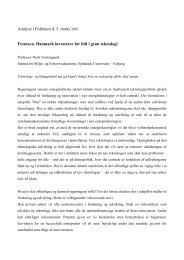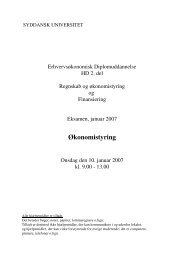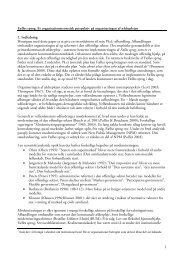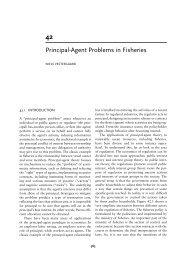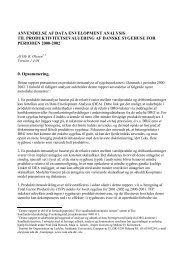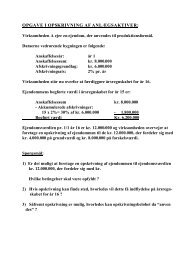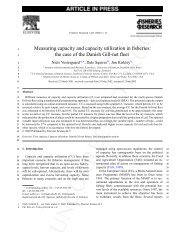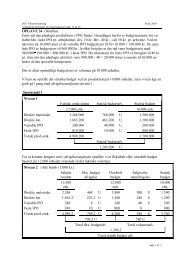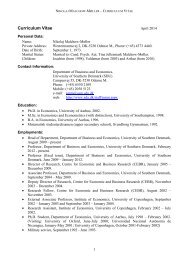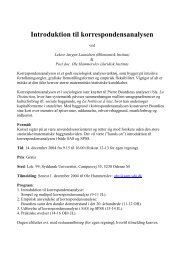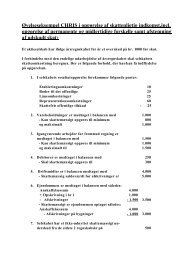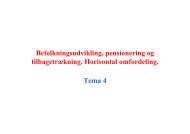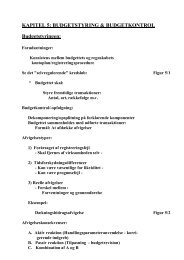Development of Parties and Party Systems in ... - lah@sam.sdu.dk
Development of Parties and Party Systems in ... - lah@sam.sdu.dk
Development of Parties and Party Systems in ... - lah@sam.sdu.dk
- No tags were found...
You also want an ePaper? Increase the reach of your titles
YUMPU automatically turns print PDFs into web optimized ePapers that Google loves.
establishment like than LPR’s. The party has <strong>in</strong> some cases cooperated closely with the liberal CivicPlatform (PO) <strong>in</strong> parliament <strong>and</strong> at the municipal <strong>and</strong> regional elections <strong>in</strong> 2002, pav<strong>in</strong>g the wayfor close cooperation at the next national election. Jaroslaw Kaczynsky was elected as then newmayor <strong>of</strong> the capital Warsaw, maybe the first step to become the nex president after Aleks<strong>and</strong>erKwasniewski. However, cooperation between Civic Platform (PO) <strong>and</strong> PiS on local <strong>and</strong> regionallevel did not make progress.Presidential parties has not been widespread <strong>in</strong> Central- <strong>and</strong> Eastern Europe. The Non-party Blockfor support <strong>of</strong> Reforms (BBWR), established just before the 1993 election as president “LechWalesa’s party”, was an exeption from that rule. From the outset, there was a strik<strong>in</strong>g similaritybetween BBWR <strong>and</strong> Jozef Pilsudski’s Non-party Block for Cooperation with the Government,founded <strong>in</strong> 1927 with the aim to strengthen Jozef Pilsudski’s authoritarian rule. Walesa’s <strong>in</strong>tentionwas to mobilize the part <strong>of</strong> the Polish people that normally is politically <strong>in</strong>active, especially peopleliv<strong>in</strong>g <strong>in</strong> the rural areas. If that happened many conflicts on the Right, he argued, could be avoided.The ultimate aim was to prevent a ”post-communists” political come-back <strong>and</strong> thereby secureWalesa's re-election as president. At the presidential election <strong>in</strong> 1991 PC supported Lech Walesa,later the cooperation was cancelled due to political rivalization <strong>and</strong> conflict<strong>in</strong>g personal ambitions.When cooperation between PC <strong>and</strong> the president ceased, BBWR took over. Thus the right w<strong>in</strong>gparties took different op<strong>in</strong>ions both regard<strong>in</strong>g president Lech Walesa’s policy <strong>and</strong> on questionsabout a new polish constitution. In fact BBWR created more conflicts than cooperation on theRight. Thus, the Democratic Union (UD) criticized the confrontational behaviour <strong>of</strong> the president(Lech Walesa) <strong>and</strong> decided to cooperate with SLD, PSL <strong>and</strong> UP on preparation <strong>of</strong> the new Polishconstitution.The BBWR was weakened due tothe defeat <strong>of</strong> Lech Walesa at the 1995 presidential election <strong>and</strong>after that ceased to constitute any <strong>in</strong>tegrative force on the Right. From the beg<strong>in</strong>n<strong>in</strong>g BBWRs<strong>in</strong>fluence <strong>in</strong> parliament was limited <strong>and</strong> other parties’ attitudes to BBWR sceptical. Most partiessimply saw the BBWR as a “presidential party”. After some time BBWR became almost <strong>in</strong>visible<strong>in</strong> parliament.Like other parties on the Right also BBWR spoke about transition to market economy with manyreferences to Christian values. Its vision <strong>of</strong> the future Polish state was dist<strong>in</strong>ctly solidariccorporatistic(Knuzewski 1998:142). Democratic values were accepted <strong>in</strong> pr<strong>in</strong>ciple, but at the sametime the need <strong>of</strong> a stronger executive power <strong>and</strong> more law <strong>and</strong> order was underl<strong>in</strong>ed. More liberalabortion laws were refused <strong>and</strong> more cooperation with the church underl<strong>in</strong>ed, also proposals aboutmore f<strong>in</strong>ancial support for loss-mak<strong>in</strong>g enterprises <strong>and</strong> agriculture was put forward. Opposite manyother right-w<strong>in</strong>g parties, BBWR passed the treshold requirement at the 1993 election won by the”post-communists”.At the beg<strong>in</strong>n<strong>in</strong>g BBWR received some support among the new entrepreneurs <strong>and</strong> the anticommunist<strong>and</strong> anti-Russian part <strong>of</strong> the Polish population, but few votes from <strong>in</strong>tellectuals. Mostvoter support was obta<strong>in</strong>ed <strong>in</strong> the Gdansk region <strong>and</strong> <strong>in</strong> the southern regions <strong>of</strong> the country.Recogniz<strong>in</strong>g that the chances <strong>of</strong> re-election to parliament were non-exist<strong>in</strong>g when “go<strong>in</strong>g alone”,also BBWR decided to jo<strong>in</strong> AWS. Before that decision was taken BBWR had taken part <strong>in</strong> otherassociations <strong>and</strong> discussion fora, e.g. ”Obóz Patriotyczny” <strong>and</strong> ”Konwent sw. Katarzny”, aim<strong>in</strong>g togenerate cooperation among the too many mutually compet<strong>in</strong>g political group<strong>in</strong>gs on the right.72



